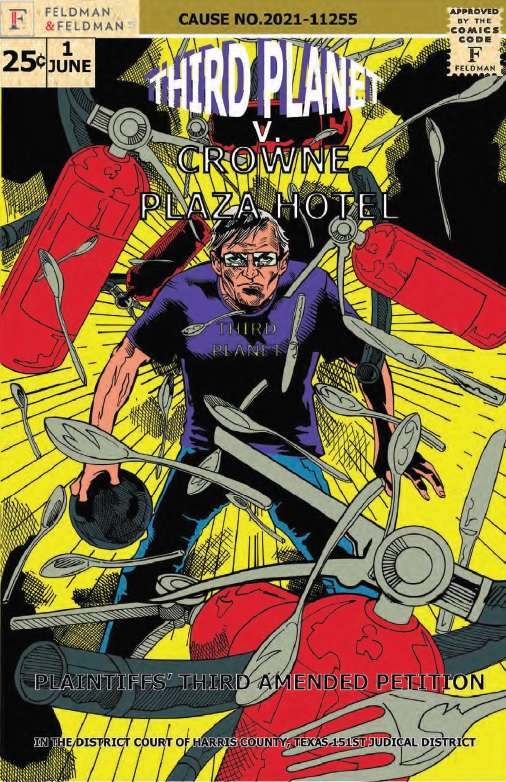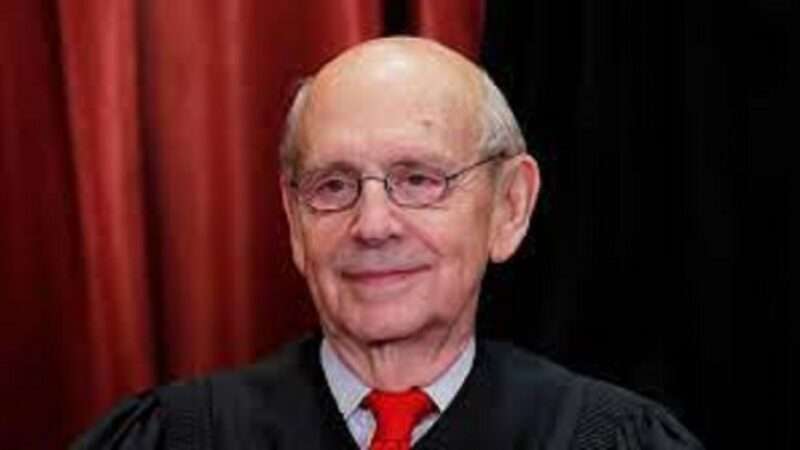You can also read the article in PDF, or read all the posts that have been posted so far on this thread; but in this post, I excerpt the start of the policy analysis.
A commenter on the Introduction post, by the way, remarked that such calls for treating social media platforms as common carriers aren’t very libertarian or conservative—and they’re not. They stem from a concern that’s mostly associated with liberals (though not foreign to conservatives): the concern over excessive private corporate power, which sometimes needs to be checked by government power. I’m generally skeptical about such concerns (more on that later), but I wonder whether in this instance this traditional liberal worry is justified. More below, and more on the First Amendment questions coming up soon.
[* * *]
Let’s begin with the policy question, and ask: Why might we want phone companies to be barred from cutting off service based on subscribers’ viewpoints?
Say a phone company argues: We don’t want our service to be used to promote racial hatred or advocacy of Communism or conspiracy theories, and our other subscribers don’t want it, either. We want to be able to cancel phone lines of subscribers who are publicly known to be engaging in “hate speech” or advocating violence or revolution.[17] That speech is “terrible,” and it “hurts society.”[18] Why does the law preclude the companies from doing this—even when they’re not monopolies, such as landline companies might be,[19] but are highly competitive cell phone providers?
I take it one answer might be something like this: We don’t want large business corporations deciding what Americans can say in a particular medium of public communication. Sometimes, in the few areas where the First Amendment permits government regulation, the people’s representatives decide that. Usually, individual speakers and listeners decide that.[20] But companies that provide communications infrastructure should provide the infrastructure, not control what may be communicated on it.[21] When “dominant digital platforms” have the power “to cut off speech,” we should be as concerned about that power as we are about, say, government power to exclude people from limited public forums.[22]
This is generally the attitude, I think, even as to many platforms that aren’t legally common carriers. For instance, though the FCC has held phone companies are not common carriers as to text messaging, the rationale for that decision was the need to block unwanted robotexting—and as to messages among willing customers, a concurring opinion assured readers that, “Tomorrow, like today, our text messages will go through.”[23]
Likewise, e-mail systems are generally not treated as common carriers, and can in theory legally screen messages based on their viewpoints or on their supposedly spreading conspiracy theories or misinformation. Still, I suspect that most people would be surprised if Microsoft (Outlook) and Google (Gmail) decided to control their communications this way. In the words of New York’s high court, an e-mail system’s “role in transmitting e-mail is akin to that of a telephone company, which one neither wants nor expects to superintend the content of its subscribers’ conversations.”[24]
Of course, phone companies or delivery companies might well use their power wisely, to block speech that the government can’t suppress but that is still bad—bad for its subjects who are being insulted or harassed or defamed, bad for democracy, bad for public health, bad for the victims of crimes that the speech might inspire.[25] But such companies, like all human institutions, can act badly as well as well. And common-carrier law allows us “not to place all one’s hopes in the good will of corporate actor.”[26]
This is connected to the argument of the Court’s majority in Austin v. Michigan Chamber of Commerce and of the four dissenters in Citizens United v. FEC: The power of immensely rich corporations may “give corporations unfair influence” and “distort public debate[s].”[27] Or, in the words of the liberal think tank Demos, criticizing Citizens United: “Concentrated wealth has a distorting effect on democracy[;] therefore, winners in the economic marketplace should not be allowed to dominate the political marketplace.”[28]
I think the Citizens United majority was right to hold that this couldn’t justify restricting corporations’ own speech. But the argument for limiting the power of massive corporations strikes me as especially strong—and, as the next Part will argue, consistent with the First Amendment—when the corporations are using their immense “financial resources” not just to try to persuade listeners through the corporations’ own speech, but to suppress others’ speech.
Indeed, much of Justice Stevens’ argument in his Citizens United dissent would apply to such selective blocking decisions by infrastructure companies:
A legislature might [reasonably] conclude that unregulated general treasury expenditures will give corporations “unfair influence” in the electoral process, and distort public debate in ways that undermine rather than advance the interests of listeners. The legal structure of corporations allows them to amass and deploy financial resources on a scale few natural persons can match…. [Because of the speech of corporations,] the opinions of real people may be marginalized…. “[Corporate] expenditure restrictions … are thus meant to ensure that competition among actors in the political arena is truly competition among ideas.”
Corporate “domination” of electioneering can [also] generate the impression that corporations dominate our democracy…. The predictable result is cynicism and disenchantment: an increased perception that large spenders call the tune and a reduced willingness of voters to take part in democratic governance.
To the extent that corporations are allowed to exert undue influence in electoral races, the speech of the eventual winners of those races may also be chilled. Politicians who fear that a certain corporation can make or break their reelection chances may be cowed into silence about that corporation…. Unregulated corporate electioneering might diminish the ability of citizens to hold officials accountable to the people, and disserve the goal of a public debate that is uninhibited, robust, and wide-open.[29]
Though Justice Stevens wrote this about corporate speech about particular candidates,[30] I think it applies to corporate restrictions on speech about public issues more broadly, since such restrictions can obviously affect elections, whether imminent ones or future ones. And of course such speech about public issues can range from detailed ideological argument, to short slogans (“Fuck the Draft” / “God Hates Fags”[31]), and to the personal-as-political (such as sexual minorities’ coming out of the closet or some speakers’ refusal to use transgender people’s preferred names or pronouns[32]).
These concerns also apply to social media platforms as much as to phone companies and other business corporations. For many advocacy groups, social media presence is as important as having a phone line, and might even be more so.[33]
It’s true that groups could communicate even without Facebook or Twitter, and historically had of course done so before social media was invented. But likewise they could communicate without phone lines, as political movements did throughout much of American history.
In an environment where advocacy groups compete with each other for support and attention—and do so by communicating to the public—denying a group a vastly important means of public communication is a serious burden. And it’s a serious leveraging of the platforms’ economic power to affect the community’s political life.[34]
Indeed, it’s a much more serious leveraging, I think, than with corporate election-related speech as such. Corporate independent expenditures related to political campaigns are a relatively minor portion of all political expenditures (likely only about 5–10%), roughly the same as unions.[35] “While corporations and unions gained potential political power as a result of Citizens United, it’s individual donors who are fueling the explosion of money in recent elections.”[36] But the social media platforms put together have far greater control over the speech marketplace. Likewise, Justice Stevens argued that, “The legal structure of corporations allows them to amass and deploy financial resources on a scale few natural persons can match”[37]—and one could add that 47 U.S.C. § 230(c)(1) immunity from libel and similar lawsuits has likewise allowed platforms to amass and deploy financial resources on a scale that few corporations can match.
And recall that Justice Stevens was concerned about a fairly indirect form of speech restriction: “corporations grabbing up the prime broadcasting slots on the eve of an election” and thus “drowning out … noncorporate voices”[38] (something that appears not to happen that much). Corporations’ actually restricting what people can say on hugely important social media platforms seems like an even more significant interference with public debate. “That private technology platforms exert unparalleled power over political discourse is deeply undemocratic,” write Prasad Krishnamurthy and Erwin Chemerinsky,[39] and I’m inclined to agree.
This is particularly so for platforms that are near monopolies in their particular fields. But even in the absence of a monopoly, “similar terms, similar market forces, and the societal pressures all services face regarding a controversial or distasteful product” may end up broadly restricting viewpoints of which Big Tech managers and employees.[40]
To be sure, all this doesn’t mean that diminishing this power is necessarily a wise idea. Perhaps some solutions to the problem are even more undemocratic, or perhaps the platforms’ free speech rights justify even such undemocratic results (more on that in the next Part). But we should seriously consider whether something can and should be done about that power, and treating the platforms’ hosting function like we treat phone companies seems like one plausible option.
[17] Assume all this is done without listening in on private phone calls, but just by consulting public statements (e.g., an extremist group’s public ads that list a phone number) or reviewing texts that come from a phone number and that were passed along to the phone company by the recipient. Texting is generally not governed by common carrier rules, but telephone service is; and seeing a text from a phone number might move the phone company to cancel that number’s phone service and not just its text service.
[18] [Add citation.]
[19] These days, even landline phone companies often face competition from cable operators, which can provide phone service, as well as cellular companies.
[20] When speakers and listeners disagree, telephone companies can implement viewpoint-neutral technologies helping listeners, such as call blocking; but let’s focus here on speakers speaking to willing listeners.
[21] See Angela J. Campbell, Publish or Carriage: Approaches to Analyzing the First Amendment Rights of Telephone Companies, 70 N.C. L. Rev. 1071, 1133 n.326 (1992).
[22] Biden v. Knight First Am. Inst. at Columbia Univ., 141 S. Ct. 1220, 1224, 1227 (2021) (Thomas, J., concurring).
[23] In re Petitions for Declaratory Ruling on Regulatory Status of Wireless Messaging Service, FCC 18-178, at 6 (Dec. 13, 2018) (O’Rielly, Comm’r).
[24] Lunney v. Prodigy Servs. Co., 723 N.E.2d 539, 542 (N.Y. 1999). The court so held in concluding that e-mail systems should be categorically immune from libel liability for their users’ messages to each other, just as phone companies are; the case arose before 47 U.S.C. § 230 was enacted, so the court chose to decide it as a matter of state libel law, rather than considering whether § 230 should be applied retroactively. Id. at 543.
[25] See, e.g., Mary Anne Franks, The Free Speech Black Hole: Can The Internet Escape the Gravitational Pull of the First Amendment?, Knight First Amend. Inst. Colum Univ. (Aug. 21, 2019), https://perma.cc/HAX8-3RZN .
[26] Genevieve Lakier & Nelson Tebbe, After the “Great Deplatforming”: Reconsidering the Shape of the First Amendment, Law & Political Economy [LPE] Project (Mar. 1. 2021), https://perma.cc/56F3-KMBE.
[27] Citizens United v. FEC, 558 U.S. 310, 469, (2010) (Stevens, J., dissenting) (cleaned up).
[28] Liz Kennedy, 10 Ways Citizens United Endangers Democracy, Demos (Jan. 19, 2012), https://perma.cc/NMX4-NNUE; see also Adam Candeub, Reading Section 230 as Written: Content Moderation and the Beggar’s Democracy, 1 J. Free Speech L. __ (2021) (expressing concern about “an elite oligarchy controlling information”).
[29] Citizens United, 558 U.S. at 469 (cleaned up in part).
[30] See also Kyle Langvardt, Will the First Amendment Scale? (forthcoming 2021) (likewise suggesting that social media platforms’ decisions “by selectively amplifying and tamping newspaper coverage of competing candidates in the run-up to the election, and then on election day tweaking the emotional content of news feeds to drive and depress voter turnout along party lines” would raise similar concerns).
[31] Cohen v. California, 403 U.S. 15, 16 (1971); 562 U.S. 443, 448 (2011).
[32] See, e.g., Gay Law Students Assn. v. Pacific Tel. & Tel. Co., 595 P. 2d 592, 610–11 (Cal. 1979) (concluding that people’s “identify[ing] themselves as homosexual” is a form of “political activity”); Meriwether v. Hartop, 992 F.3d 492, 506 (6th Cir. 2021) (concluding that not using a person’s preferred pronouns “touches on gender identity—a hotly contested matter of public concern”).
[33] Phone lines might be necessary for individuals if they need to call 911 or deal with various necessities of life (e.g., making a doctor’s appointment). But a phone company’s decision to cancel an advocacy group’s publicly advertised phone line—or at least block incoming phone calls to that line—wouldn’t generally jeopardize individual health and safety.
[34] By way of analogy, Adam Smith wrote against taxing “necessar[y]” commodities, but noted that necessity needs to be measured based on the realities of current life, not of the past. “By necessaries I understand not only the commodities which are indispensably necessary for the support of life, but whatever the custom of the country renders it indecent for creditable people, even of the lowest order, to be without. A linen shirt, for example, is, strictly speaking, not a necessary of life. The Greeks and Romans lived, I suppose, very comfortably though they had no linen. But in the present times, through the greater part of Europe, a creditable day-labourer would be ashamed to appear in public without a linen shirt, the want of which would be supposed to denote that disgraceful degree of poverty which, it is presumed, nobody can well fall into without extreme bad conduct.” Adam Smith, The Wealth of Nations 368 (1843). So it is with social media: More than just the Greeks and Romans lived very comfortably without them, but in our society access to the major social media platforms is a necessity—especially in a competitive political environment—for political groups.
[35] Corporations contributed about $300 million to outside spending groups in the 2012–18 federal election campaign cycles, and unions contributed about $275 million. Karl Evers-Hillstrom, More Money, Less Transparency: A Decade Under Citizens United, OpenSecrets.org (Jan. 14, 2020), https://perma.cc/KQ46-VUQM. The corporate contributions “made up 10 percent of funding to these groups in the 2012 cycle, a high water mark,” falling to 5% in 2018. Id. There is also an unknown amount of undisclosed spending (which includes some corporate spending) through groups such as 501(c)(4) organizations that engage in both political and nonpolitical activities; the government could in principle require disclosure of contributions to such groups, but current law does not comprehensively do so.
[36] Id.
[37] Citizens United v. FEC, 558 U.S. 310, 469 (2010).
[38] Id. at 470 (cleaned up).
[39] Prasad Krishnamurthy & Erwin Chemerinsky, How Congress Can Prevent Big Tech from Becoming the Speech Police, Hill (Feb. 18, 2021), https://perma.cc/645W-LMLP.
[40] See, e.g., Jennifer Huddleston, Consequences of Classifying Elements of the Internet as a Common Carrier, American Action Forum (Feb. 23, 2021), https://ift.tt/36jSfxz (so arguing, in the process of arguing against regulating social media platforms); Epstein, supra note 9, at 5–6 (so arguing, in the process of tentatively arguing in favor of regulating social media platforms).

from Latest – Reason.com https://ift.tt/3dPL8kv
via IFTTT





